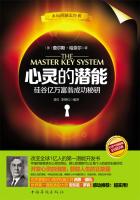The New Government Organization.
I.
Precedents of the new organization. - In practical operation. -Anterior usurpations of the public power. - Spontaneous bodies under the Ancient Regime and during the Revolution. - Ruin and discredit of their supports. - The central power their sole surviving dependence. -Unfortunately, in France at the end of the eighteenth century the bent was taken and the wrong bent. For three centuries and more the public power had increasingly violated and discredited spontaneous bodies:
Sometimes it had mutilated them and decapitated them; for example, it had suppressed provincial governments (états) over three-quarters of the territory, in all the electoral districts; nothing remained of the old province but its name and an administrative circumscription.
Sometimes, without mutilating the corporate body it had upset and deformed it, or dislocated and disjointed it. - So that in the towns, through changes made in old democratic constitutions, through restrictions put upon electoral rights and repeated sales of municipal offices,[1] it had handed over municipal authority to a narrow oligarchy of bourgeois families, privileged at the expense of the taxpayer, half separated from the main body of the public, disliked by the lower classes, and no longer supported by the confidence or deference of the community. And in the parish and in the rural canton, it had taken away from the noble his office of resident protector and hereditary patron, reducing him to the odious position of a mere creditor, and, if he were a man of the court, to the yet worse position of an absentee creditor.[2] - So that in the parish and in the rural canton, it had taken away from the noble his office of resident protector and hereditary patron, reducing him to the odious position of a mere creditor, and, if he were a man of the court, to the yet worse position of an absentee creditor.[3] Thus, as to the clergy, it had almost separated the head from the trunk by superposing (through the concordat) a staff of gentleman prelates, rich, ostentatious, unemployed, and skeptical, upon an army of plain, poor, laborious, and believing curates.[4]
Finally, it had, through a protection as untimely as it was aggressive, sometimes conferred on the corporation oppressive privileges which rendered it offensive and mischievous, or else fossilized in an obsolete form which paralyzed its action or corrupted its service. Such was the case with the corporations of crafts and industries to which, in consideration of financial aid, it had conceded monopolies onerous to the consumer and a clog on industrial enterprises. Such was the case with the Catholic Church to which, every five years, it granted, in exchange for its voluntary gift (of money), cruel favors or obnoxious prerogatives, the prolonged persecution of Protestants, the censorship of intellectual speculation, and the right of controlling schools and education.[5]
Such was the case with the universities benumbed by routine; with latest provincial "ètats," constituted in 1789, as in 1489. Such was the case with noble families subjected by law to the antique system of substitutions and of primogeniture, that is to say, to social constraint which, devised long ago for private as well as for public interest in order to secure the transmission of local patronage and political power. This system, however, became useless and corrupting, fecund in pernicious vanities,[6] in detestable calculations, domestic tyrannies, forced vocations, and private bickering, from the time when the nobles, become frequenters of the court, had lost political power and renounced local patronage.
Thus deprived of, or diverted from, their purpose, the corporate bodies had become unrecognizable under the crust of the abuses which disfigured them. Nobody, except a Montesquieu, could comprehend why they should exist; on the approach of the Revolution, they seemed, not organs, but outgrowths, deformities, and, so to say, superannuated monstrosities. Their historical and natural roots, their living germs far below the surface, their social necessity, their fundamental utility, their possible usefulness, were no longer visible. Only their present inconvenience was felt; people suffered by their friction and burden; their lack of harmony and incoherence created dissatisfaction;annoyance due to their degeneracy were attributed to radical defects;they were judged to be naturally unsound and were condemned, in principle, because of the deviations and laws which the public power had imposed on their development.
Suddenly, the public power, which had produced the evil by its intervention, pretended to remove it by a still greater intervention:
in 1789 it again intruded itself on corporate bodies, not to reform them, not restore each to its proper channel, not to confine each with proper limits, but to destroy them outright. Through a radical, universal, and extraordinary amputation, the like of which is not mentioned in history, with the rashness of the theorist and the brutality of the butcher, the legislator extirpated them all, as far as he could, even including the family, while his fury extended beyond the present into the future. To legal abolition and total confiscation, he added the systematic hostility of his preventive laws, together with a fresh obstacle in the shape of his new constructions; during three successive legislatures[7] he provided against their future regeneration, against the permanent instincts and necessities which might one day resuscitate stable families, distinct provinces, and an orthodox church, against artistic, industrial, financial, charitable, and educational corporations, against every spontaneous and organized group, and against every collective, local, or special enterprise. In place of these he installed synthetic bodies or institutions:















